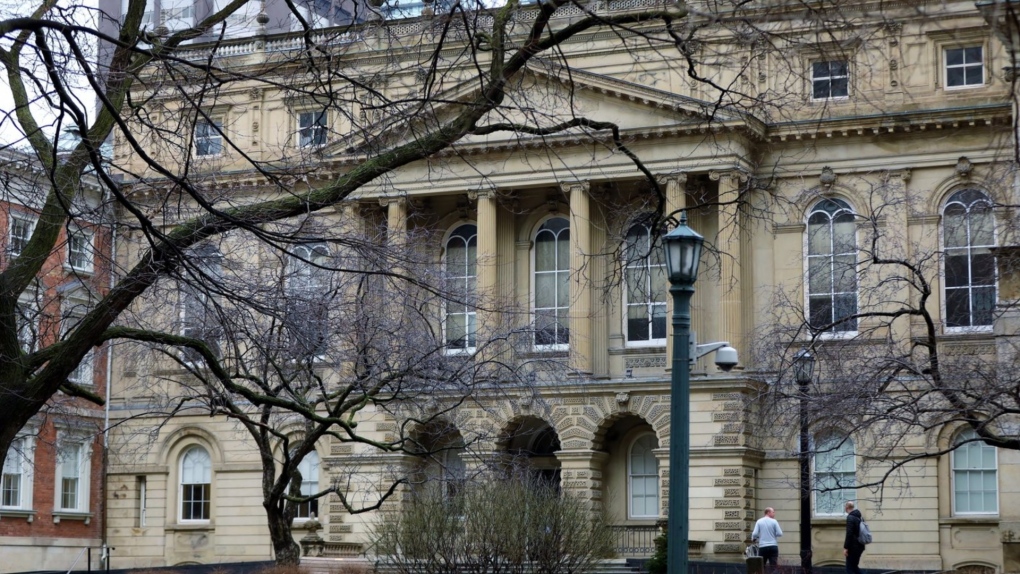Here's what you need to know about Doug Ford's Bill 124
The Ontario government has said it will repeal Bill 124, a law that capped wage increases for public sector workers for three years, after a provincial court upheld a ruling that found it was unconstitutional.
Here’s a look at how we got here:
What is Bill 124?
The Protecting a Sustainable Public Sector for Future Generations Act received royal assent on Nov. 7, 2019. The goal of the bill was to cap public sector wages in an effort to help eliminate the deficit.
- Download our app to get local alerts on your device
- Get the latest local updates right to your inbox
Officials argued the legislation was meant to be “exceptional and time-limited.”
Who did this impact?
Bill 124 impacted all public sector workers, such as teachers, nurses, and other civil employees.
When did it go to court?
The legislation received a lot of criticism, especially from unions representing public sector workers.
Ten applicants took the case to court, arguing the bill violated a section of the Canadian Charter of Rights and Freedoms that protects meaningful collective bargaining. The province argued the Charter doesn’t guarantee “unlimited annual raises for public sector workers.”
What happened?
In November 2022, Justice Markus Koehnen released an 80-page decision arguing that Bill 124 infringes on the applicants’ rights to freedom of association and collective bargaining.
“The Charter protects not just the right to associate, but also the right to a meaningful process in which unions can put on the table those issues that are of concern to workers and have them discussed in good faith,” Koehnen wrote.
The government immediately said it would be appealing the decision in court, arguing that it “erred in holding that the financial impact of the Act’s limits on the compensation increases substantially interferes with the respondent’s rights to a meaningful process of collective bargaining.”
What happened with the appeal?
On Monday, the Court of Appeal for Ontario ruled in favour of the workers, finding that it did violate the collective bargaining rights of public sector workers.
 Ontario's top court is set to rule today on the constitutionality of a law that limited raises for more than one million workers in the broader public sector, including nurses and teachers. The Ontario Court of Appeal is seen in Toronto on April 8, 2019. THE CANADIAN PRESS/Colin Perkel
Ontario's top court is set to rule today on the constitutionality of a law that limited raises for more than one million workers in the broader public sector, including nurses and teachers. The Ontario Court of Appeal is seen in Toronto on April 8, 2019. THE CANADIAN PRESS/Colin Perkel
"Because of the Act, organized public sector workers, many of whom are women, racialized and/or low-income earners, have lost the ability to negotiate for better compensation or even better work conditions that do not have a monetary value," the court wrote in its decision.
The court said that while the governments can try to hold compensation increases at a certain issue, they cannot override the collective bargaining process.
The court did, however, say the act is only unconstitutional for workers represented by unions.
What’s next?
The Ford government said late Monday night it will not pursue another court appeal. The government said it will take steps to repeal Bill 124 in the coming weeks. It also said it would introduce regulations to exempt non-unionized and non-associated workers from Bill 124 until it is repealed “to solve for the inequality of workers.”
 Ontario Premier Doug Ford and Toronto Mayor Olivia Chownot shown, hold a news conference in Toronto on Monday Nov. 27, 2023. THE CANADIAN PRESS/Chris Young
Ontario Premier Doug Ford and Toronto Mayor Olivia Chownot shown, hold a news conference in Toronto on Monday Nov. 27, 2023. THE CANADIAN PRESS/Chris Young
While the case was being heard in court, the government had slowly been paying remedies to these workers, which included nurses and teachers, to make up for lost wages.
How much did this cost?
Premier Doug Ford told reporters the government has “spent billions” on Bill 124. While the Progressive Conservatives have not put a dollar figure to the legislation, a report by the Financial Accountability Office of Ontario suggests the cost between 2022 and 2028 will total about $13.7 billion.
“The FAO’s current spending forecast now assumes that all union and non-union public sector employees that were subjected to Bill 124 will receive wage increases to adjust for the impact of the legislation,” the report says.
“The Province has also recorded a $2.5 billion contingent liability in the 2022-23 Public Accounts of Ontario to recognize the potential impact of retroactive payments.”
In 2022, the FAO predicted the government would need to pay around $8 billion if the court challenge was successful.
CTVNews.ca Top Stories

From essential goods to common stocking stuffers, Trudeau offering Canadians temporary tax relief
Consumers will receive a temporary tax break on essential items and common stocking stuffers heading into the holiday season, Prime Minister Justin Trudeau announced Thursday, alongside a spring $250 rebate for 18.7 million Canadians.
BREAKING Matt Gaetz drops bid for Trump attorney general in face of U.S. Senate opposition
Hardline Republican Matt Gaetz withdrew his name from consideration as U.S. president-elect Donald Trump's attorney general, in the face of opposition from the Senate Republicans whose support he would have needed to win the job.
Here's a list of items that will be GST/HST-free over the holidays
Canadians won’t have to pay GST on a selection of items this holiday season, the prime minister vowed on Thursday.
Mother charged after infant dies in midtown Toronto: police
The mother of an infant who died after being found at an apartment building in midtown Toronto on Wednesday has been charged with failing to provide the necessaries of life.
2 arrested during Greenpeace protest outside Stornoway residence in Ottawa
Two people have been arrested following a protest outside Stornoway, the official residence of Canada's leader of the Opposition.
Arrest warrant issued for suspect charged in Toronto airport gold heist
Peel police say a bench warrant has been issued for the arrest of one of the suspects charged in connection with the gold heist at Pearson International Airport last year.
Son of Norway crown princess detained for one week in rape probe
The son of Norway's crown princess will be jailed for up to one week while police investigate accusations of rape made against him, a judge ruled on Wednesday.
Australian who drank tainted alcohol in Laos has died, raising toll to 4
An Australian teenager has died after drinking tainted alcohol in Laos in what Australia's prime minister on Thursday called every parent's nightmare. An American and two Danish tourists also died, officials said, following reports that several people had been sickened in a Laotian town popular with backpackers.
Watch Dramatic video shows officers save driver from burning truck after brakes fail
Stunning video shows officers in Columbus, Ohio jumping into action to save a driver from his burning pickup truck.





























